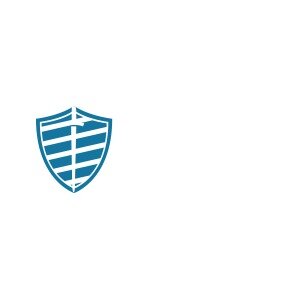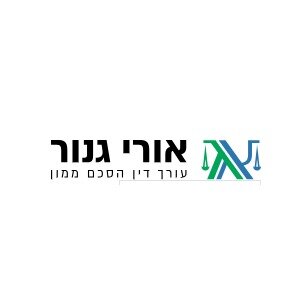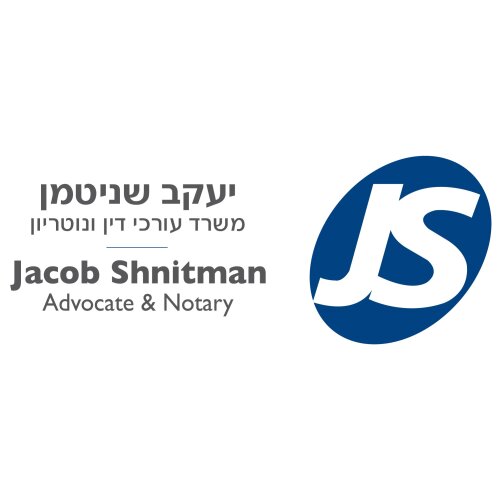Best Sanctions & Export Controls Lawyers in Haifa
Share your needs with us, get contacted by law firms.
Free. Takes 2 min.
List of the best lawyers in Haifa, Israel
About Sanctions & Export Controls Law in Haifa, Israel
Sanctions and export controls law governs the regulation of goods, technology, and financial transactions crossing borders, especially those restricted by international sanctions or national security interests. In Haifa, a major Israeli port city and an important hub for technology and international trade, these laws hold particular significance. Israel is bound by both its own legal framework and international obligations, impacting how businesses and individuals deal with import and export activities. Sanctions can be imposed under Israeli law, United Nations Security Council resolutions, and by various international partners, directly affecting trade and business operations in Haifa.
Why You May Need a Lawyer
Navigating sanctions and export controls can be complex, and legal assistance is often essential. You may require a lawyer if you:
- Operate a business involved in the import or export of goods or technology from Haifa
- Face inquiries or enforcement actions from authorities regarding violations of sanctions or export controls
- Deal with contracts requiring compliance with sanctions laws, especially in high-tech, shipping, or defense sectors
- Are considering entering new trade markets with countries affected by international sanctions
- Need guidance on screening customers and suppliers for compliance
- Encounter issues related to dual-use goods, which have both civilian and military application
- Are a financial institution with obligations to monitor and report sanctioned transactions
- Require representation in administrative or criminal proceedings for alleged breaches of export controls or sanctions
Local Laws Overview
In Israel, sanctions and export controls are primarily regulated by several laws and government bodies. Key legislation includes:
- Israel’s Import and Export Order, which sets out restrictions and licensing requirements for certain goods and technology
- The Control of Commodities and Services Law and related regulations, which further detail what exports require government approval
- Implementation of United Nations Security Council sanctions, which may restrict trade with specific countries or entities
- Additional restrictions on dual-use items and military goods set by the Ministry of Defense
- Anti-Money Laundering laws, which may involve financial institutions in enforcing compliance with sanctions laws
Enforcement is overseen by various bodies, including the Ministry of Economy and Industry, the Ministry of Defense’s Export Control Agency, and occasionally the Israel Tax Authority in matters of customs. Noncompliance can result in harsh penalties, including heavy fines, loss of trade licenses, or, in more serious situations, criminal liability.
Frequently Asked Questions
What are sanctions and export controls?
Sanctions are legal restrictions imposed by governments or international bodies on trade, financial transactions, or travel with certain countries, entities, or individuals. Export controls regulate the transfer of specific goods, technology, or information to other countries, especially if considered sensitive or potentially harmful to national or international security.
Who enforces sanctions and export controls in Haifa?
Enforcement is carried out by several Israeli authorities, including the Ministry of Economy and Industry, the Ministry of Defense, the Israel Tax Authority, and relevant law enforcement agencies.
Are there specific industries in Haifa particularly affected by these laws?
Yes. The port, shipping, high-tech, defense, and chemical industries in Haifa are especially affected due to their involvement in international trade and dealings with restricted goods or technology.
What is a dual-use good?
A dual-use good is a product or technology that can have both civilian and military applications. Examples include certain chemicals, software, or electronic components. Exporting these items typically requires a special license in Israel.
Can an individual be personally liable for violations?
Yes. Both companies and individuals, including managers and officers, can be held personally responsible for violations, with penalties ranging from administrative fines to criminal charges.
Do Israeli companies need to comply with foreign sanctions?
Israeli companies must comply with Israeli law. However, due to the global nature of business, many Israeli companies in Haifa and elsewhere choose to adhere to foreign sanctions, such as those imposed by the United States or European Union, to avoid secondary sanctions or loss of business relationships.
How do I know if my business needs an export license?
If your business deals with items listed in the Israeli export control lists or any dual-use goods, you likely need to obtain an export license from the Ministry of Economy and Industry or the Ministry of Defense.
What happens if my business violates sanctions or export controls?
Violations can result in severe consequences, including hefty fines, loss of business licenses, seizure of goods, and in serious cases, criminal prosecution of responsible individuals.
What should I do if I receive a compliance inquiry or enforcement notice?
Do not respond without legal advice. Consult a lawyer experienced in sanctions and export controls to guide you through the process and help protect your rights and interests.
How can a lawyer help my business with sanctions compliance?
A lawyer can conduct compliance audits, draft and review contracts for legal exposure, provide training for your staff, represent your business before authorities, and assist with applying for the necessary permits or licenses.
Additional Resources
If you need information or support regarding sanctions and export controls in Haifa, you may find the following resources helpful:
- Ministry of Economy and Industry - Foreign Trade Administration
- Ministry of Defense - Export Control Agency
- Israel Tax Authority - Customs Department
- Israeli Bar Association - Legal Referral Services
- Chamber of Commerce, Haifa District
These organizations can provide guidelines, updates on relevant regulations, and sometimes hold informational seminars or training.
Next Steps
If you believe you may be affected by sanctions or export controls, or if you have received an inquiry from authorities, take the following steps:
- Gather all documents relating to your import, export, or financial transactions
- Identify whether your goods, technology, or counterparts are listed in sanctioned entities or require export licenses
- Seek advice from a lawyer specializing in sanctions and export controls law in Haifa
- Work with your lawyer to assess compliance, respond to authorities, or apply for necessary licenses
- Consider implementing or updating an internal compliance program for your business
Consulting with an experienced legal professional ensures you are protected, compliant with the law, and able to conduct your business activities with confidence.
Lawzana helps you find the best lawyers and law firms in Haifa through a curated and pre-screened list of qualified legal professionals. Our platform offers rankings and detailed profiles of attorneys and law firms, allowing you to compare based on practice areas, including Sanctions & Export Controls, experience, and client feedback.
Each profile includes a description of the firm's areas of practice, client reviews, team members and partners, year of establishment, spoken languages, office locations, contact information, social media presence, and any published articles or resources. Most firms on our platform speak English and are experienced in both local and international legal matters.
Get a quote from top-rated law firms in Haifa, Israel — quickly, securely, and without unnecessary hassle.
Disclaimer:
The information provided on this page is for general informational purposes only and does not constitute legal advice. While we strive to ensure the accuracy and relevance of the content, legal information may change over time, and interpretations of the law can vary. You should always consult with a qualified legal professional for advice specific to your situation.
We disclaim all liability for actions taken or not taken based on the content of this page. If you believe any information is incorrect or outdated, please contact us, and we will review and update it where appropriate.















